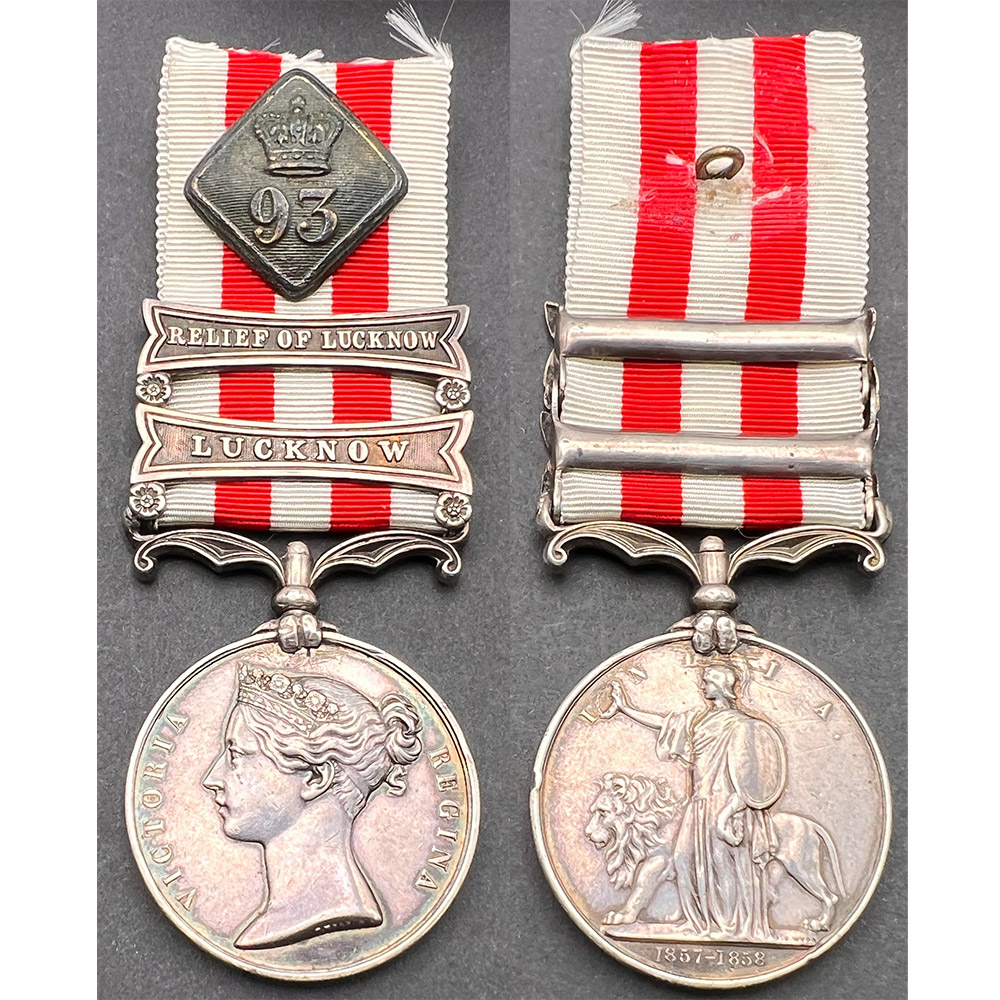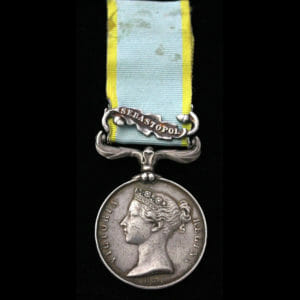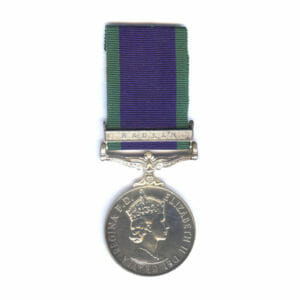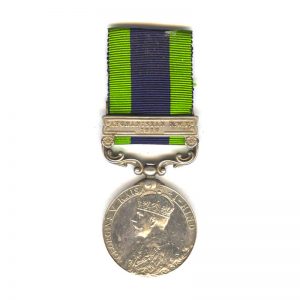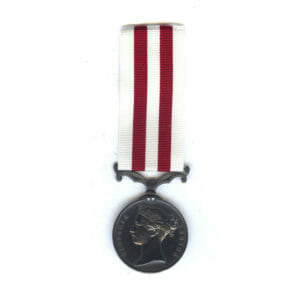Description
Indian Mutiny Medal, 2 bars, Lucknow, Relief of Lucknow, Private William Armstrong, 93rd Highlanders, former 72nd Highlanders, with service papers. 7 Victoria Crosses to Regiment during war.
Officially impressed: “Wm ARMSTRONG. 93rd HIGHLANDERS.”
Both clasps confirmed on the medal roll.
Suspension claw tightened.
Also sold with a good condition original period 93rd Highlanders Coattee button.
With copy service papers, roll entries, some muster entries (one noting he earned a good bounty of 1 Gold Guinea).
Aberdeen Press, 11th March 1903:
“ARMSTRONG, At 55 June Street, Aberdeen, on the 7th inst, William Armstrong, Pensioner, late 72nd and 93rd Highlanders, aged 65.”
Mr William Armstrong was a long serving Scotsman of the famous 93rd Highlanders, having initially enlisted in the 72nd Seaforth Highlanders during 1856, he would swiftly transfer over after a year to the 93rd Highlanders and proceeded to India.
During the course of the Indian Mutiny, a young Private Armstrong would take part in the operations to Relieve Lucknow during which the 93rd would take part in much fighting and earned 7 Victoria Crosses for their bravery.
They took part in various actions including the Storming and Capture of Sikandar Bagh or “Secundra”, a walled garden fortification on 16th November 1857, this is the fine action that earned them 6 of their Victoria Crosses.
At daybreak of 17th November 1857, the Regimental Colour was hoisted on top of a tower as a signal to beleaguered garrison of the Residency at Lucknow.
On the 19th November 1857, they provided covering fire as the evacuation of the residency took place.
After that they fought in the Second Battle of Cawnpore during December 1857.
In 1858, they fought in the Storming and Capture of Kaiser Bagh in March 1858, during which a Victoria Cross, the Regiment’s 7th, was earned by Lieut William McBean, for his role in killing eleven rebels with his sword during the engagement.
Afterwards they fought in the capture of Bareilly in May 1858 and a further skirmish at Russulpure in October 1858.
After the end of the Mutiny, the 93rd remained on service in the region, until 1870, adding up to his 12.5 years of service in India.
He did not leave the army until he completed his 21 years of service aged 40, during 1876, and settled afterwards in Aberdeen where he died during 1903.
Private William Armstrong was born circa 1837 in Castleton, Langholm, Roxburghshire, Scotland.
The son of William and Betty, born into a large family in Castleton.
At the age of 19, at Dumfries, he attested for service with the 72nd Highlanders on 31st January 1856.
After 1 year, he transferred over to the 92nd Highlanders on 1st March 1857.
He was discharged after completing 21 years on 13th February 1877.
Out of his 21 years of service, 12 years 190 days were spent on service overseas in the “East Indies”.
However due to some slight misdemeanours, of some periods of imprisonment, he would miss out on an LSGC medal.
“His conduct has been good, he is in possession of 3 good conduct badges, and the Indian Mutiny Medal, has 2 clasps, not in possession of a school certificate of education.”
“Has been entered into the regimental defaulters book 7 times, and has been once tried by court martial.”
